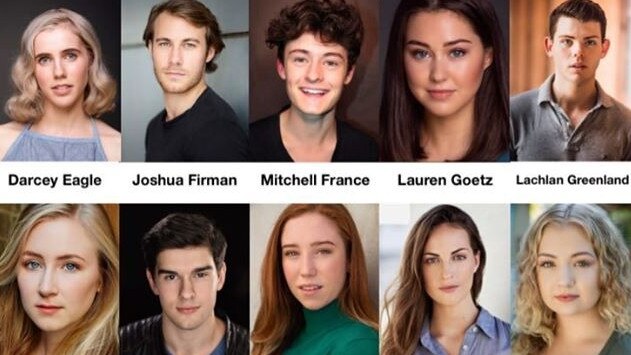Musical theatre scholarship panned for ‘all white’ finalists
A fund offers aspiring performers $65,000 in prizes but has been lambasted for a lack of diversity among its semi-finalists.

Australia’s richest musical theatre scholarship program has been lambasted on social media after announcing an almost entirely white group of semi-finalists on Thursday morning.
The Rob Guest Endowment, established in 2008 after the sudden death of leading musical theatre performer Rob Guest, is set to offer $65,000 in prizes this year to assist the next generation of musical theatre stars.
Given the coronavirus pandemic, hopeful applicants sent in audition tapes last month and the top 30 semi-finalists were announced on Thursday.
The announcement was swiftly met with backlash and outrage online because the group is predominantly white performers, selected amid the current climate of debate about cultural diversity and representation in the industry and the Black Lives Matter movement.
Questions have been levelled at the judging panel, which includes director Roger Hodgman and musical director Guy Simpson, about whether there is enough representation on the decision making side of the equation.
The Australian is not suggesting the semi-finalists are not qualified to have been selected.
Graeme Kearns, who chairs the Rob Guest Endowment committee, told The Australian the organisation clearly needed to “work harder at encouraging entrants from the BIPOC (black, indigenous, people of colour) community”.
“We are not seeing a high number of entries from that quarter,” Mr Kearns said.
Mr Kearns said, while the judging panel were all well known experts in their respective fields of musical theatre in Australia, he doubted “whether any identify as BIPOC” and said the only judging metric was talent.
“The Rob Guest Endowment will continue to work on our message that diversity can only be good for our industry and continue to encourage and welcome the BIPOC community to participate in our competition,” Mr Kearns said.
“We will continue to seek ways to inject this thinking into our agenda including BIPOC appointments to our leadership team.”
Mr Kearns said the RGE encourages “all those who are disappointed with the diversity of our semi-finalist group to encourage their talented friends and family to step up and enter the competition next time”, which will be in 2022.
RGE has published a similar statement on social media, to which the response was swift and scathing.
Writer Benjamin Law said there were “still so many employers and judges who imply a lack of diversity in the line-up is somehow the fault of racial minorities not applying in droves”.
“Or that because they don’t factor in race in their selection process, it’s somehow now a meritocracy based on talent,” Mr Law said.
“But it’s your job to initiate outreach and headhunt talent. Don’t blame your shortcomings in this task on others. And to argue an ostensibly all-white line-up of 30 are coincidentally the most talented is jawdropping. Especially in a country where at least ¼ of us aren’t white.”
Musical theatre performer and WAAPA graduate Lyndon Watts commented on the Instagram announcement that it seemed like a “misstep not to elevate” young performers of colour, particularly at this time.
“Our industry is changing and centring inclusivity moving forward, this group unfortunately doesn’t represent that,” Watts said.
James Majoos, a musical theatre graduate from the Victorian College of the Arts who was cast as the lead in the now cancelled Everybody’s Talking About Jamie earlier this year, echoed these sentiments.
“This is perpetuating white success in an already heavily white, cis dominated industry,” Majoos said.
One of this year’s semi-finalists Alec Steedman has sent an email to the Rob Guest Endowment to say, if he is to progress any further, he would like to donate any prizemoney to “institutions battling systemic racism”.
“I feel that it is my responsibility as a competitor to address the lack of representation of performers of diverse backgrounds in the top 30,” Steedman said.
“Hopefully this can help to lead to a future endowment where more BIPOC performers are able to apply.”
The 30 semi-finalists issued a statement saying they “stand with artists and performers who are people of colour”.
“We are uniting to listen, learn and actively be a part of the solution,” they said.
“There is a conscious unity within the 30 to support and actively be a part of the solution.”
Inaugural winner and performer of colour Danielle Matthews said her experience of the Rob Guest Endowment had been “wonderful” because she felt “for once it wasn’t about fitting the narrow, stereotypical casting brief”.
“I know it was that way once and I truly hope it will continue to work hard to keep those opportunities for people like myself in the future,” Matthews said.
A group for equity diversity has been established on Facebook with a view to use assistance from the union (MEAA) in calling for a more active response and apology from RGE.



To join the conversation, please log in. Don't have an account? Register
Join the conversation, you are commenting as Logout